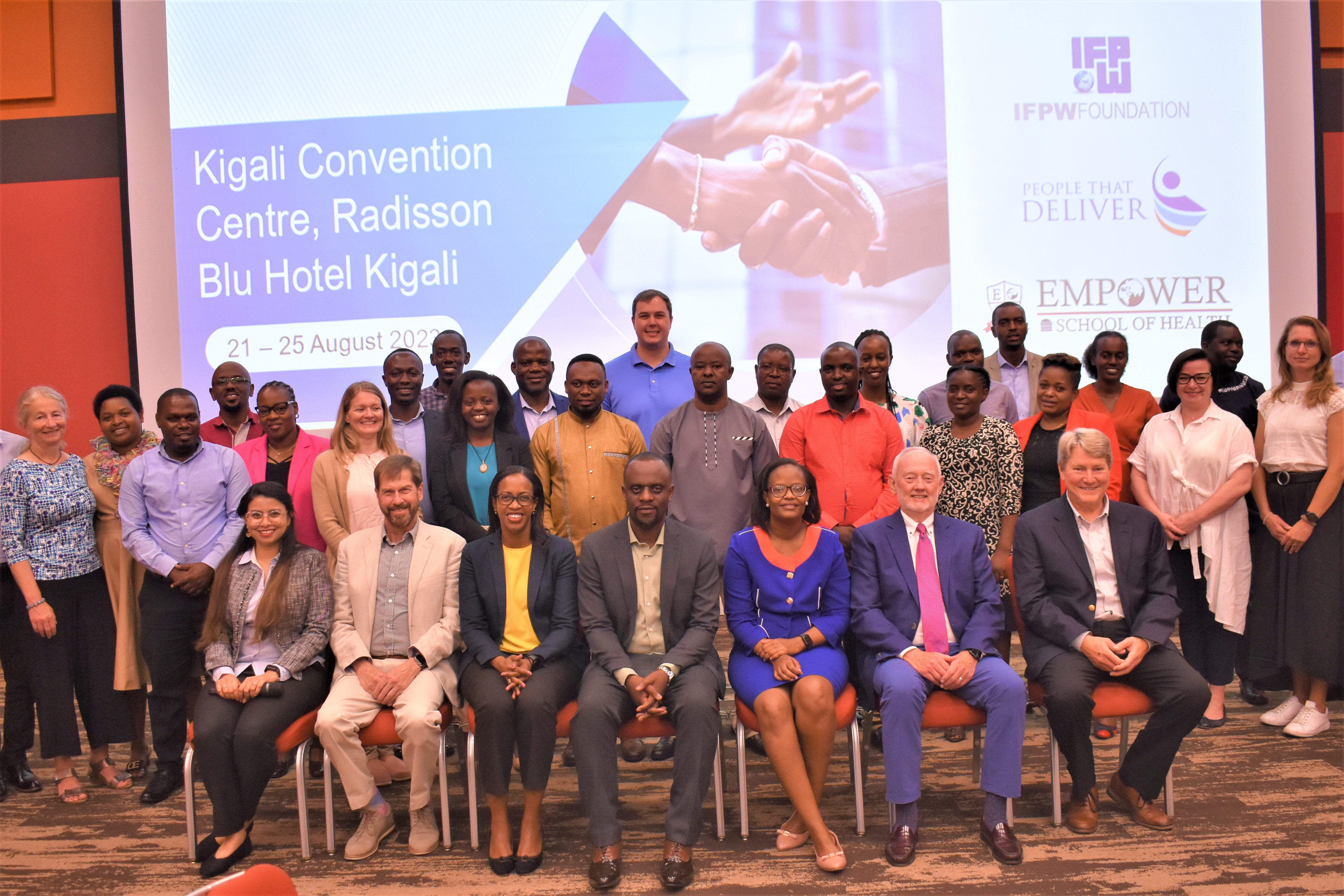In 2023, 25 supply chain leaders and managers from Rwanda Medical Supply Ltd (RMS) – the public organisation charged with ensuring the country’s access to health commodities – participated in and graduated from STEP 2.0. Every participant was from the same organisation (RMS), which enabled RMS to change its organisational culture and bring about lasting change.
STEP 2.0 is a change management programme that enhances the leadership skills of public sector health supply chain managers in low- and middle-income countries (LMICs). What makes STEP 2.0 particularly unique is that it pairs public sector supply chain managers – the participants – with private sector supply experts – the coaches.
Using STEP 2.0 to bring teams together
When a significant number of staff understand the STEP 2.0 principles and approach, and participate together in the programme, it becomes far easier to introduce and implement supply chain transformation throughout the organisation. Having participated in the STEP 2.0 programme alongside their colleagues, the Rwanda cohort now has a mutual understanding about the best way to overcome challenges and lead their teams.
Jonah Kwikiriza, STEP 2.0 participant from RMS, said, “The first day of the workshop, we were worried that we were in the same room with management but we changed from the first day when we saw the team dancing. It was a social way to build the team and I learnt that team building does not have to do with ranks, but with targets and objectives.”
How to make the most of STEP 2.0
The RMS leadership used the programme preparation phase to define the organisation’s main challenges. The STEP 2.0 facilitation team and coaches then worked with RMS to identify the top six supply chain transformation priority areas to focus on throughout the programme. These areas were the focus of participants’ your transformation challenge: this is a structured, step-by-step process in which participants identify a supply chain obstacle their organisation is facing and, along with their assigned private sector coach, develop and implement a plan to lead their team through the challenge (read more about your transformation challenge here).
The workshop phase of the STEP 2.0 programme provides an opportunity for participants to come together with the coaches and to work together to improve their leadership and problem-solving skills, and work through the change management process. On this occasion, the private sector coaches were provided by AmerisourceBergen (now Cencora), GlaxoSmithKline, Johnson & Johnson, Merck and Pfizer. The in-person workshop familiarises the participants with different leadership styles and change management strategies, and prepares them to apply these principles in their own organisations contexts; your transformation challenge is central to this, throughout which participants receive the support of facilitators and coaches.
Tackling persistent supply chain problems
In Rwanda the participants worked together on their transformation challenges to find solutions to organisational challenges including data integrity, personnel retention, private sector engagement and warehouse management. Bringing together colleagues from various teams with different roles to tackle real problems – with the support of private sector expert coaches – offered a unique opportunity for RMS leaders to enhance their leadership abilities and to take steps to address organisational challenges.
Jonah Kwikiriza added, “The two main things I learnt from STEP was the importance of communication and team building. One of the coaches said it is important to appreciate and motivate the team first before requesting what to do and informing them how to do it.”
All participants who attended the workshop said they would highly recommend the STEP 2.0 programme to their procurement and supply chain management colleagues.
STEP 2.0 is coordinated by PtD. The five-day workshop in Rwanda was organised by Empower School of Health in partnership with the International Federation for Pharmaceutical Wholesalers’ (IFPW) Foundation and USAID Global Health Supply Chain Program, Procurement and Supply Management (USAID GHSC PSM).
For more information on STEP 2.0, read the STEP 2.0 impact brief 2023 or have a look at the STEP 2.0 map.

